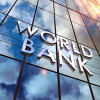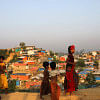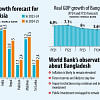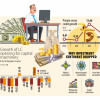Bangladesh lost Tk 2 lakh crore in potential VAT

Bangladesh missed out on about Tk 2 lakh crore in value-added tax (VAT) in the fiscal year (FY) 2018-19 due to a lack of compliance by firms, the prevalence of exemptions, and truncated rates below the 15 percent uniform rate, said the World Bank (WB).
The multilateral lender said the amount of VAT that the country missed out on was more than twice the revenue that it logged during the year, which amounted to Tk 85,000 crore.
Most of it was caused by policy choices, the WB said in its latest report on Bangladesh's economy, released yesterday.
The WB measured VAT losses based on an analysis of the VAT gap -- an estimate of the overall difference between theoretical VAT revenue and the amount actually collected.
The VAT gap analysis is based on the methodology introduced for the International Monetary Fund's Revenue-Administration Gap Analysis program.
"Bangladesh currently collects approximately half of its potential revenue, given its economic structure, level of development, and trade openness," said the report.
"If there were no policy and compliance gaps, there is potential to collect over three times more VAT revenue," said the report.
Besides, the compliance gap is relatively high in Bangladesh compared to other nations.
"Bangladesh's estimated compliance gap is 42 percent while it ranges from 5-10 percent in South Africa and 28-31 percent in Costa Rica," said the report.
In terms of policy gap, Bangladesh is less of an outlier. Policy gaps range from 25-32 percent in South Africa and 64 percent in Sri Lanka, with Bangladesh's policy gap estimated at 49 percent of reference revenue.
The WB report said Bangladesh only generates two-thirds of the predicted amount in personal income tax and less than 60 percent of the predicted amount in corporate taxes.
"For the latter, Bangladesh is among the worst-performing middle-income countries."
About major bottlenecks, the report said the government is deprived of large amounts of tax revenue due to money laundering, tax evasion, and illicit capital flows.
Most of these challenges have persisted for at least the last decade despite being recognised by the government. They are yet to be resolved, said the report.
Besides, corporate tax compliance is poor. According to NBR data, more than 56 percent of firms do not have a TIN and over 55 percent of TIN-holding companies do not pay corporate taxes.
Only a handful of telecom operators, tobacco companies, and banks account for the bulk of the collection.
In the FY22 budget, the corporate tax rates for non-listed companies and listed companies have been reduced by 2.5 percentage points to 30 percent and 22.5 percent, respectively.
"Yet, the rates are still higher than in many competitor countries and aspirational peers in South-East Asia."
The global financial agency said "improving revenue mobilisation is critical to increase public resources to support growth and development of Bangladesh".
It added that despite rapid economic growth in recent years, Bangladesh struggled to strengthen its domestic resource mobilisation.

 For all latest news, follow The Daily Star's Google News channel.
For all latest news, follow The Daily Star's Google News channel. 









Comments